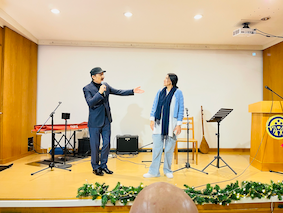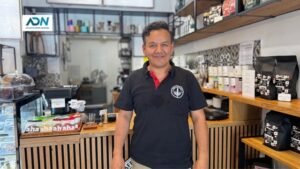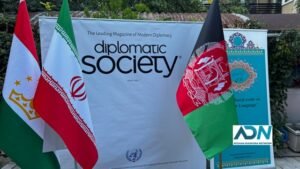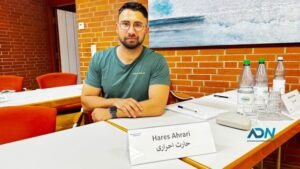Voices After Exit: Mohra Barekzai and the Fight for Afghan LGBTQ+ Visibility

Mohra Barekzai, the first self-identified Afghan transgender woman, speaking at the Gender Apartheid Conference organized by the Afghan Cultural Association (AKIS) in Vienna on May 23–24. Photo by @Ali Ahmad for ADN.
ADN
When Mohra Barekzai stepped onto the stage at the Afghan Cultural Association (AKIS) conference in Vienna, it marked a powerful first: never before had an Afghan-led forum invited a transgender activist to speak about LGBTQ+ rights.
For Barekzai, a human rights activist and Afghanistan’s openly transgender advocate, the moment was both historic and deeply personal. She wasn’t just representing herself—she stood as a voice for a community long silenced, ignored, and erased both in Afghanistan and across the diaspora.
“It’s good to be here and to finally present the community that has been erased,” she said. “Activists and organizations never stood by us. We were never heard.”
The two-day conference that began on May 23th—focused on gender apartheid and Afghan women’s rights—Barekzai’s presence challenged long-standing taboos. It also exposed the painful reality that even within Afghan human rights circles, LGBTQ+ voices remain unwelcome.
A Life of Activism, Often Alone
Raised in Afghanistan, Barekzai completed her early education there before pursuing a university degree in India. Now a master’s student in international relations, she has spent the last four years at the frontlines of LGBTQ+ activism.
That journey, however, has often been a solitary one.
“I’ve been alone in my struggle,” she said. “I went on hunger strike in Malmö, Sweden, during the winter—eleven days. I sat in a tent for 150 days. No one joined me. Last year in Berlin, I was on hunger strike for nine days. Again, I stood alone.”
She attributes this isolation not only to conservative stigma, but to exclusion by those who claim to champion human rights. “Because I am transgender, many ignored me,” she said. “They felt ashamed to stand by me. Even educated people discriminate against me.”
Her experience reflects a broader issue: the systematic erasure of LGBTQ+ people, not only in Afghanistan but also within diaspora communities that promote values of democracy and equality.
The Forgotten Victims
Barekzai is quick to remind that the persecution of LGBTQ+ Afghans predates the Taliban’s 2021 return to power.
“Under the former republic government, warlords and officials persecuted us too,” she said. “LGBTQ+ people were arrested, raped, assaulted. Families were targeted. People had to flee their homes and live in hiding in major cities. They were forced into prostitution or drug addiction.”
Often, LGBTQ+ individuals were treated as disposable. “They would use us as sex objects and sometimes kill us,” she said. “Under the Taliban, it’s even worse—they kill us on the spot. But make no mistake, the suffering started long before them.”
Though her own family has been supportive—an exception rather than the rule—Barekzai remains attuned to the trauma others carry. “Many LGBTQ+ Afghans are victims of their own families,” she said. “I didn’t face that, but I feel the pain of those who did.”
A Demand for Visibility
Barekzai’s speech in Vienna was brief, but urgent.
“We are human,” she said. “It doesn’t matter if you are gay, transgender, or straight—we all deserve rights. We all deserve dignity.”
She also criticized a recent report by an international organization on gender apartheid in Afghanistan, noting that LGBTQ+ people were completely absent from the findings.
“We were erased again,” she said. “Our persecution is real, and it must be documented.”
Her message was a call to action—for Afghan rights organizations, international bodies, and human rights defenders—to end their silence.
“We need to stand by each other, shout louder, and fight harder,” she said.
For many in the audience, it was the first time they had heard such truths spoken publicly in an Afghan setting. Barekzai’s story is not only one of pain and exclusion—it is also one of resolve and resistance.
In a world where queerness and Afghan identity are often seen as incompatible, Mohra Barekzai embodies both—and refuses to disappear.
“We are normal people,” she said. “We have the full right to life. We are not going anywhere.”
The full interview with Mohra Barekzai, on which this story is based, is available on the ADN YouTube channel.











